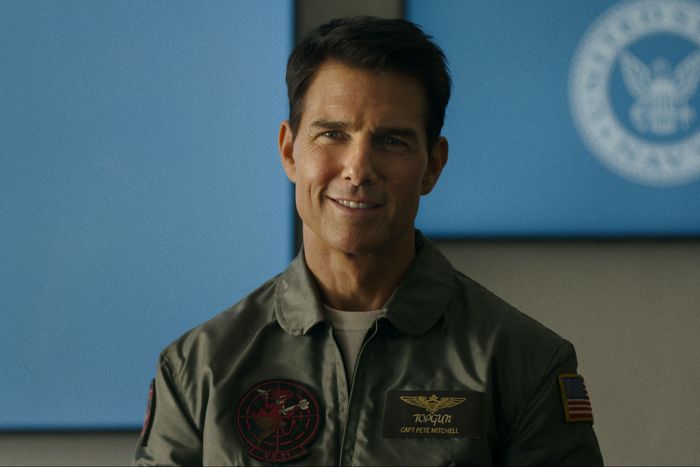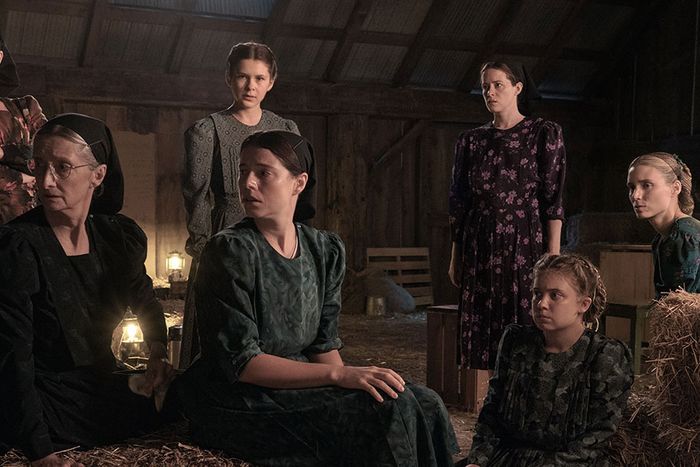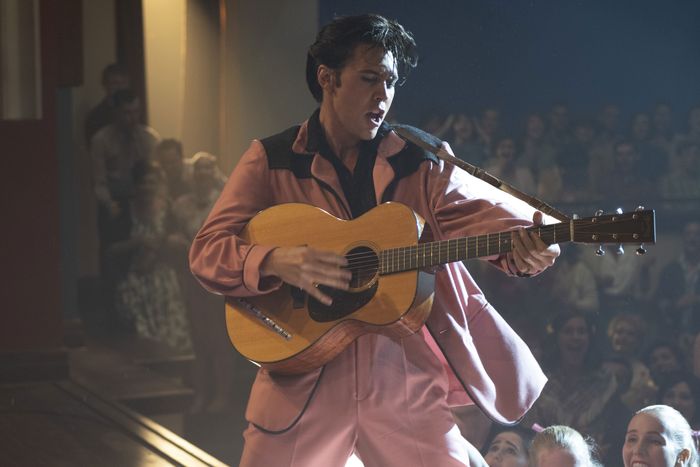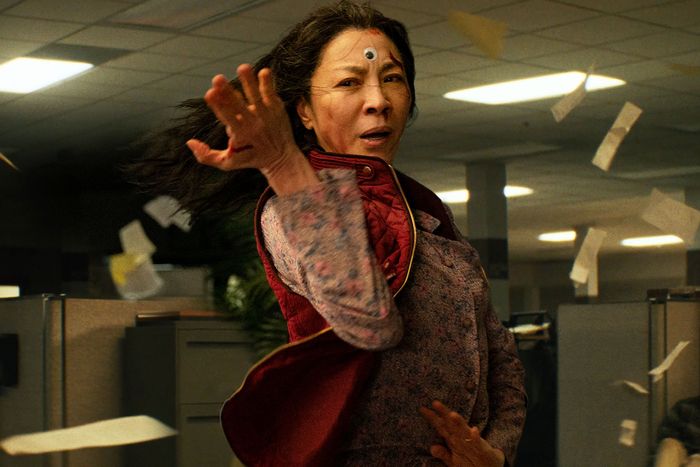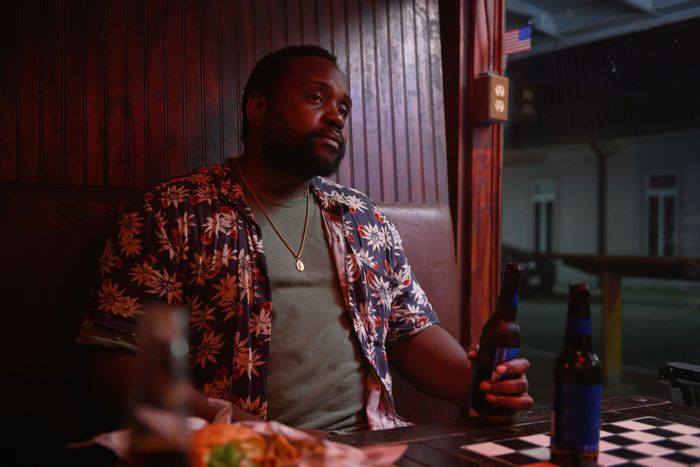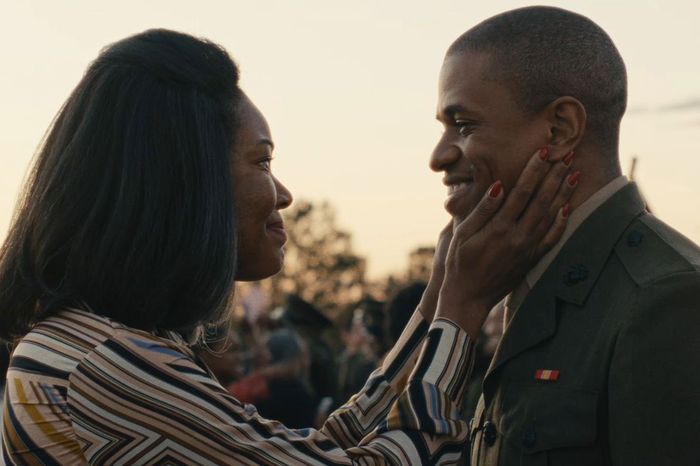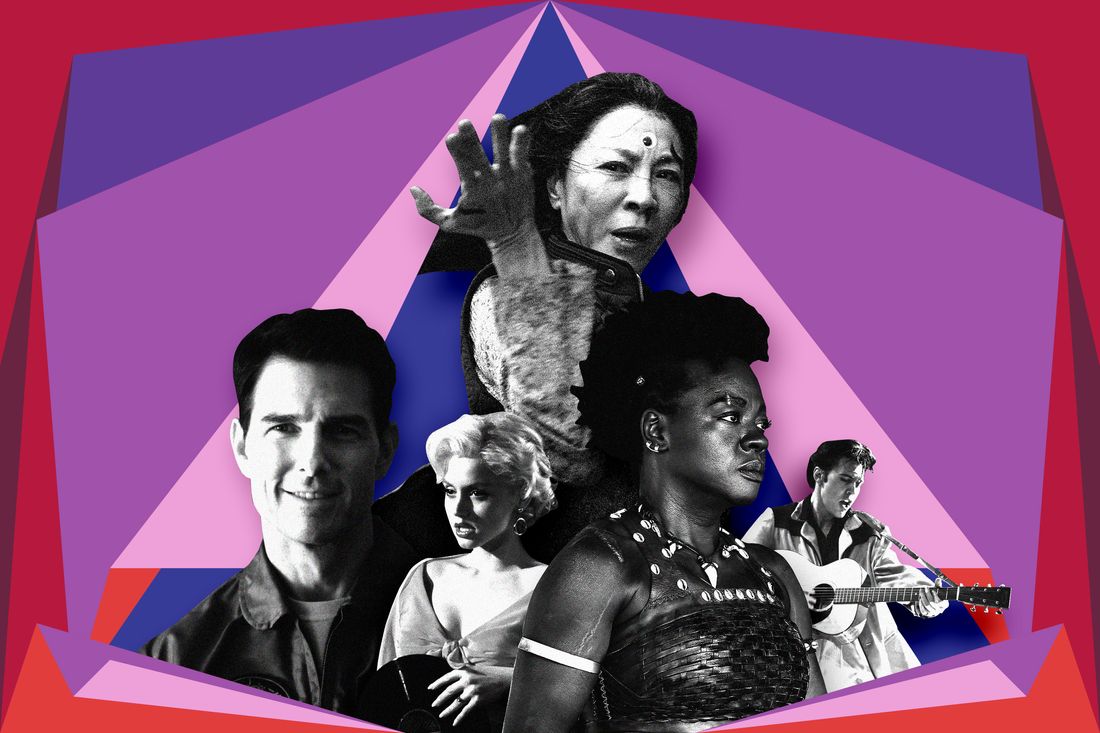
It’s funny to think back on now, but the lead-up to the 94th Academy Awards was devoted to the issue of whether the Oscars could ever dominate the cultural conversation like they used to. The previous year’s pandemic ceremony had been the least-watched ever, and most of the 2022 nominees had either underperformed at the box office or gone straight to streaming. Things got so desperate that a few pundits even started clamoring for the Academy to nominate Spider-Man: No Way Home for Best Picture. (They settled for giving an imaginary award to the Flash entering the Speed Force.)
The question of whether the show still mattered was definitively answered the moment Will Smith delivered a five-fingered comedy review, though I suspect this was not the way AMPAS would have preferred the Oscars to prove their relevance. You can almost hear them sniffing that the ceremony is meant to celebrate the wonders of cinema, not pit short-tempered A-listers against each other. An understandable reaction, but one that brings to mind a Roman drama critic upset that the crowd at the Coliseum only wants to see Christians getting eaten by lions. That’s what it’s there for!
Now that the Oscars have our attention, what will they do with it? Pundit consensus holds that this year’s festivals delivered fewer sure-fire nominees, but that could turn out to be a blessing in disguise. With fewer seats saved for the fall’s prestige offerings, there might be room for spring and summer releases like Everything Everywhere All at Once, Top Gun: Maverick, and Elvis to add Oscar gold to their box-office hauls. Throw in the upcoming sequels Black Panther: Wakanda Forever and Avatar: The Way of Water, whose predecessors were both Best Picture nominees, and we may be in for a blockbuster-heavy Oscar slate, something I doubt the ratings obsessives at ABC would complain about.
That’s not the only way in which the awards industry is hoping to turn back the clock. As a physical experience, the fall festivals were back to pre-pandemic levels of hubbub — long lines, packed houses, A-list elbow-brushing. And January will see the Golden Globes return to the public airwaves, not only the grand restoration of a nationally recognized platform for the entire awards circus but also a promise we will never have to pretend to take the Critics Choice Awards seriously ever again. Was a one-year timeout enough of a punishment for the HFPA’s long history of low-level corruption? Perhaps not, but it’s worth remembering that even the Oscars began life as a union-busting scheme from Louis B. Mayer. No aspect of the season is untouched by sin.
While there are still plenty of titles waiting in the wings — besides those films listed above, Damien Chazelle’s Babylon will debut around Christmas — by now we’ve seen enough intriguing films that we can begin to glean the shape of the race. Here’s an overview of the field in the six biggest categories.
Best Picture
After Venice, Telluride, and Toronto, three films stand out among all the aspirants for the top prize. Steven Spielberg’s cinematic memoir The Fabelmans won the Audience Award at TIFF, a prize that almost always portends a Best Picture spot. (The past ten winners all got nominated.) Sarah Polley’s Women Talking, an intimate drama about sexual abuse, earned the runner-up prize at TIFF and garnered plenty of best-of-the-fest reactions out of Telluride. I didn’t meet anyone who didn’t like Martin McDonagh’s The Banshees of Inisherin, a tale of friendship gone sour in 1920s Ireland that currently boasts a perfect Rotten Tomatoes score.
Joining EEAAO, Elvis, and Top Gun: Maverick in the populist side of the slate could be Gina Prince-Bythwood’s The Woman King, a Viola Davis–led war flick that feels like a deliberate throwback to ’90s VHS epics, and Rian Johnson’s Glass Onion: A Knives Out Mystery, which came in third at Toronto and could become Netflix’s top priority in the awards race — especially as the streamer’s other titles, Noah Baumbach’s White Noise and Alejandro Iñárritu’s Bardo, both got iffy receptions at Venice.
The increasingly international cast of Academy membership has opened up a dedicated lane for foreign films in the Oscar race. (Call it AMPAS Global Entry.) Three of the past four Best Picture fields have included films produced outside the U.S., and I see no reason the trend should abate this year. The dream of RRR elbowing its way into the conversation is probably dead after India decided not to submit it in International Film — I still hold out hope for an Original Song nomination for “Naatu Naatu” — but the Belgian drama Close and the South Korean thriller Decision to Leave each have a shot, and Netflix is stumping hard for the German selection, a remake of All Quiet on the Western Front.
Divisive festival offerings that could attract enough love to crack Best Picture include acting vehicles Tár, in which Cate Blanchett plays a female conductor who gets Me Too–ed, and The Whale, which stars Brendan Fraser as a 600-pound man who loves Moby Dick. Ruben Östlund’s Triangle of Sadness earned a few side-eyes for skewering obvious targets, but it apparently played as well with crowds at TIFF as it did at Cannes, where it won the Palme d’Or. And if The Fabelmans wasn’t Roma-y enough for you, there’s also Sam Mendes’s Empire of Light, about how we come to the movies for magic, and James Gray’s Armageddon Time, an edgy recreation of early ’80s NYC. (Bardo, which I haven’t seen yet, is allegedly quite Roma-y itself.)
On the horizon we’ve got the tentpoles Wakanda Forever and Avatar 2, Chazelle’s jazz-age extravaganza Babylon, and the civil-rights biopic Till, plus the Harvey Weinstein investigative drama She Said, which seems liable to prompt some awkward “What did you do in the war, Grandpa?” style questions for those in the mogul’s orbit. Are you ready to make Oscar season uncomfortable again?
Best Director
When Steven Spielberg’s West Side Story underwhelmed last season, the joke was that awards voters were saving the laurels for The Fabelmans, a prediction that’s looking pretty smart at the moment. If Spielberg gets in as expected, he’ll headline a field of past winners, including Damien Chazelle, currently still editing Babylon; Alejandro Iñárritu, cutting 22 minutes out of his Lincoln-less Bardo after a poor showing at Venice; James Cameron, hoping his Avatar sequel can do the impossible again; and Empire of Light’s Sam Mendes, probably enjoying a nice cup of tea in a comfy chair somewhere.
You wouldn’t call Sarah Polley or Martin McDonagh “new blood” — both slid seamlessly into filmmaking in the aughts after successful careers as a child actor and playwright, respectively — but Women Talking and The Banshees of Inisherin have been well-regarded enough to possibly earn each their first directing nomination. (However, this pair of cloistered dramas will have to overcome the directing branch’s preference for whiz-bang technical mastery.) Todd Field of Tár is a two-time Screenplay nominee hoping to finally join the big table with his ultracontemporary satire, while the never-nominated-in-this-category Baz Luhrmann of Elvis can make a strong claim to have done the most directing. Gina Prince-Bythewood of The Woman King turned in some of the best action scenes of the year, as did Top Gun’s Joseph Kosinski and EEAAO duo Daniels, though the latter would be the first directing nominee with a butt-plug joke since Mrs. Miniver.
The directing branch is even more international than the rest of the Academy, and recently they’ve set aside at least one slot for a filmmaker from outside the English-speaking world. The most likely names this year are Swedish scamp Ruben Östlund for the class satire Triangle of Sadness, Korean icon Park Chan-wook for his Hitchcock romance Decision to Leave, Deutschland 83 vet Edward Berger for the new All Quiet on the Western Front, and Belgian newcomer Lukas Dhont for the coming-of-age weeper Close. Though with this branch’s idiosyncratic tastes, it’s worth remembering the immortal words of Kristen Stewart in Spencer: We think pundits know everything, but they Dhont.
Best Actor
In Best Actor, we may be in for a classic critics-versus-audiences showdown. Both The Whale, in which a prosthetic-laden Brendan Fraser plays a morbidly obese man seeking redemption, and The Son, which stars Hugh Jackman as a father grappling with his teenager’s depression, drew rivers of tears from festival audiences. They were also almost universally scorned by critics at TIFF, who called The Whale “ghastly” and The Son “staggeringly manipulative.” Still, both films contain big emotional swings that should play with voters, and Fraser in particular is working a comeback narrative that could be strong enough to weather any future blowback.
Fortunately, a pair of quiet performances have been resonating as well. Colin Farrell’s turn as a lovable dullard in Banshees of Inisherin and Bill Nighy as a bureaucrat rediscovering himself in Living both broke hearts on the festival circuit, and career-capstone nominations for each seem likely. A dark-horse run at the trophy should not be written off for either.
Besides those four, it’s anyone’s guess. Austin Butler of Elvis has the transformation on his side, though the 30-year-old hunk is less seasoned than voters usually go for in this category. (He’d be the second-youngest Best Actor nominee of the past decade, after Timothée Chalamet.) Two more fresh faces are youngster Gabriel LaBelle as the Spielberg stand-in in The Fabelmans and Broadway’s Jeremy Pope as a gay Marine recruit in The Inspection, a small autobiographical drama that might not be A24’s top priority.
In what’s shaping up as a weak Actor year, it’s entirely plausible the category will be filled out by someone I haven’t seen yet, like Adam Driver of White Noise or newcomer Diego Calva of Babylon, for whom Paramount recently hosted a meet-and-greet with awards bloggers. Then there’s the wild card: Tom Cruise in Top Gun: Maverick, a titanic feat of movie-star charisma, but a frankly different style of acting than the effortful performances traditionally recognized here. But who knows — in a field this open, there might be room for Maverick to fly in.
Best Actress
Six years ago, Michelle Williams saw her best shot at an Oscar disrupted by Viola Davis, who submitted in Supporting Actress for Fences and promptly ran away with the trophy. This year it’s Williams’s turn to upend a category, as Universal decided to run her gushy performance in The Fabelmans in lead rather than supporting. It’s an expression of confidence in her manic mom-play, but given that Williams was widely considered the front-runner for the Supporting Actress trophy, possibly a recipe for yet more heartbreak.
She joins what’s perennially our most stacked acting race, with formidable competition from Cate Blanchett’s prickly maestro in Tár and Michelle Yeoh’s balletic action hero in EEAAO, two stars in roles tailor-made for their gifts. Olivia Colman is in the middle of one of the great Oscar hot streaks, and even if Empire of Light underwhelmed, the role of a lonely woman struggling with romance and mental health gives her plenty to chew on. Viola Davis was a rousing pitchwoman for The Woman King at TIFF, and the 57-year-old Oscar winner’s transformation into a brawny action star should not be underestimated.
That’s a robust five right there, with four wins and eighteen nominations between them. How about some underdogs? Vicky Krieps does good work in the very Oscar-friendly role of Empress Sisi of Austria in the punky period piece Corsage. On the gentler side of the spectrum, Emma Thompson earned raves as a woman seeking an orgasm in Good Luck to You, Leo Grande (a Hulu film originally declared ineligible, but which got in on appeal) and Jennifer Lawrence makes a low-key return as a wounded soldier in Causeway. In the exact opposite type of movie, there’s Blonde, which will be a hard sit for many viewers — a three-hour, NC-17 fantasia on the Marilyn myth, full of rape, domestic violence, and talking fetuses — but you can’t deny Ana de Armas’s full-bodied commitment to the role.
It’s a crowded race, and it’ll only get more so once we see Danielle Deadwyler as a grieving mother in Till, Carey Mulligan and Zoe Kazan as investigative reporters in She Said, Naomi Ackie as Whitney Houston in I Wanna Dance With Somebody, and Margot Robbie as a debauched starlet in Babylon. Bring on the drama!
Best Supporting Actor
From the most crowded category to the most wide open. After absorbing dozens of festival offerings, I’ve only seen two performances I feel confident pegging for a nomination: Brendan Gleeson as an ornery fiddler who’s essentially the co-lead of Banshees of Inisherin (and who’s kicking off his campaign by hosting SNL), and Judd Hirsch, whose cameo as an oddball relation in The Fabelmans grabs the movie by the shoulders and shakes it. When Hirsch made his exit after less than ten minutes of screen time, the premiere audience at TIFF erupted in spontaneous applause.
Who else is there? Ke Huy Quan brings the heart to EEAAO, and he’s got one heck of a story himself. The Fabelmans might double-dip with Paul Dano’s introverted father or Seth Rogen’s Borscht Belt Claudius; Banshees could with Barry Keoghan’s local weirdo. Michael Ward as a cinema employee figuring out his life in Empire of Light and Ben Whishaw as the token man in Women Talking could get some coattail love.
I also dug Anthony Hopkins as an advice-spouting grandpa in Armageddon Time, Brian Tyree Henry as a mournful auto mechanic in Causeway, and Ralph Fiennes as a chef undergoing a crisis of conscience in The Menu. But all might realistically be the lone nomination for their films, a hard feat to pull off in the supporting categories. The trio will have to hope their projects find favor elsewhere on the ballot as well.
The absence of any slam dunks makes it all the more important who we haven’t seen. Could Brad Pitt repeat for Babylon? Or will the Academy be forced to do the unthinkable and pick Tom Hanks’s Col. Tom Parker in Elvis? If God created COVID to try to prevent that performance from seeing the light of day, what vengeance might He wreak if Hanks gets nominated?
Best Supporting Actress
Michelle Williams’s absence also shakes up a category suddenly bereft of a front-runner. All we know at this early date is that at least one actor from the large female ensemble of Women Talking will probably make the final five, but what combination of Rooney Mara, Claire Foy, Jessie Buckley, and Judith Ivey that will be I can’t answer until I catch the film in New York. I have heard, though, that Foy has the strongest clip, as well as speculation that Mara may run in lead, which would help clear things up a bit.
I also see a path for Kerry Condon as Farrell’s level-headed sister in Banshees and Gabrielle Union as a homophobic mother in The Inspection. (With the caveat that Union may have the same lone-nominee issue as Hopkins et al.) Other contenders may take time to shake out. Does EEAAO go with the star power of Jamie Lee Curtis or the madcap villainy of Stephanie Hsu? Will Brendan Fraser’s candidacy boost The Whale’s angsty Sadie Sink or five-tool utility player Hong Chau? Should Team Woman King prioritize co-lead Thuso Mbedu or Lashana Lynch, who’s serving Wahlberg-in–The Departed vibes? (If The Son manages to overcome the haters, Laura Dern vs. Vanessa Kirby will be a similar question.)
On the flip side, there’s room to make some wild predictions. Filipina actress Dolly De Leon walks away with the third act of Triangle of Sadness, and without spoiling Glass Onion, Janelle Monáe gets to [redacted] and [redacted]. Of the approximately five thousand actresses in Babylon, it’s fun to guess the one who’ll pop: Jean Smart, Li Jun Yi, or someone else? Or maybe voters will simply pull a Judas and the Black Messiah and slot Michelle Williams in Supporting anyway? Screw certainty — the Oscar race is more fun when we know nothing.



